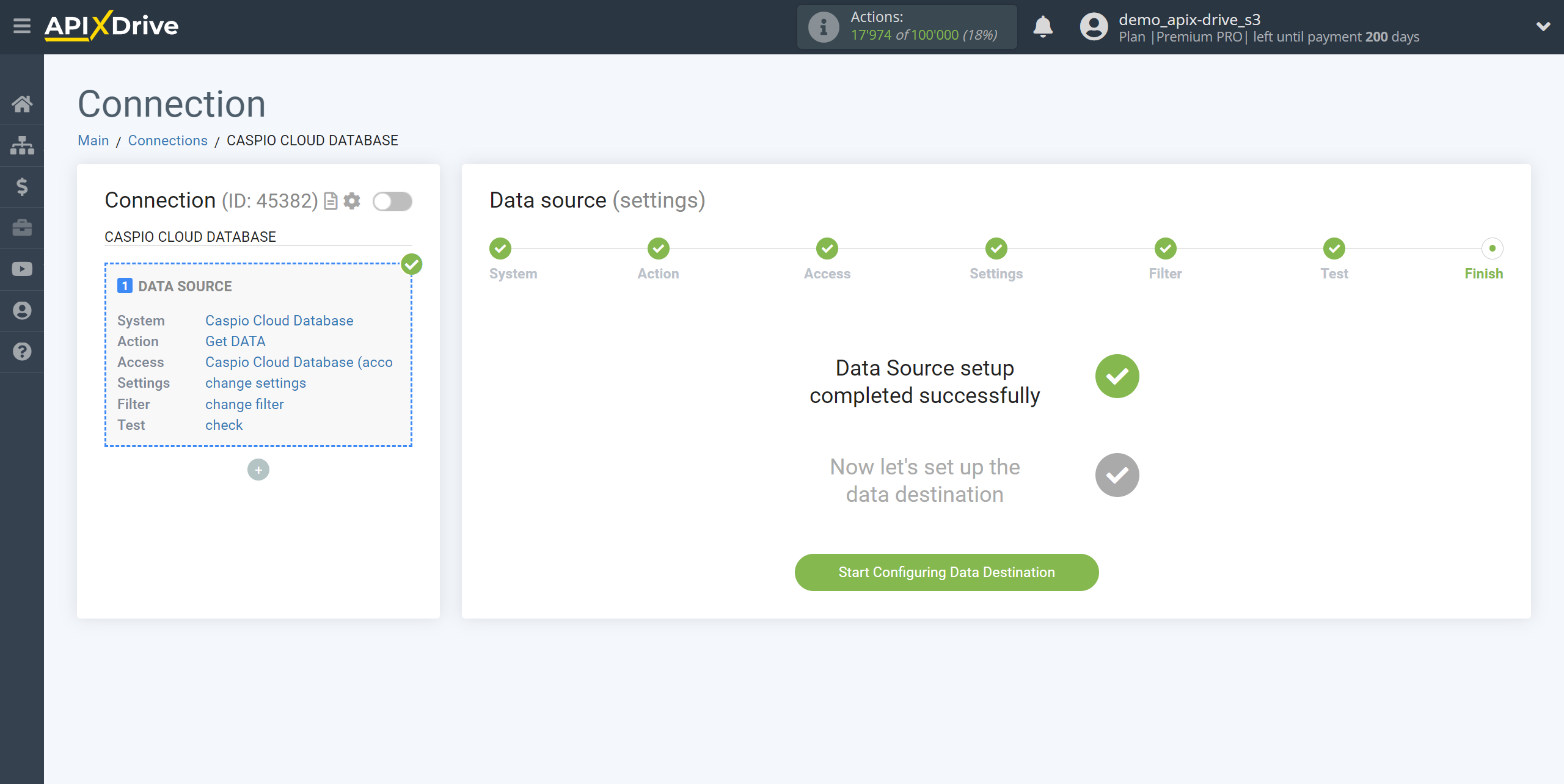How to Connect Caspio Cloud Database as Data Source
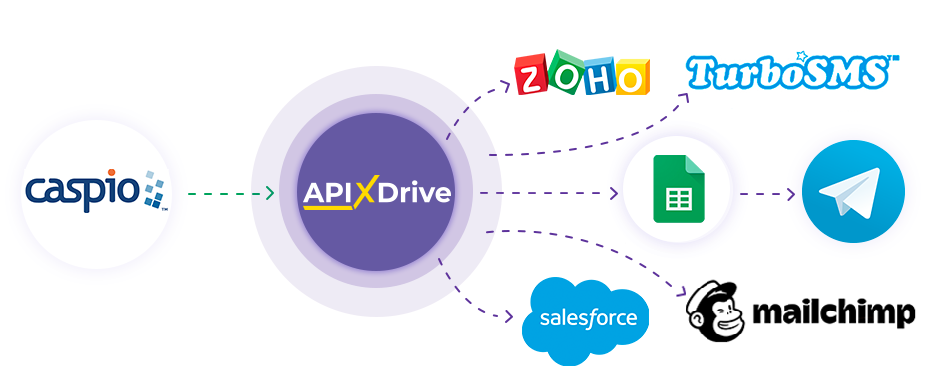
Integration allows you to get data for new, changed or deleted table rows from Caspio Cloud Database. For example, you can transfer data in new rows to GoogleSheets or CRM or duplicate it in a group with managers in Telegram. Integration will allow you to automate the data processing process as efficiently as possible using the different services you use.
Let's go through the entire Caspio Cloud Database setup steps together!
Navigation:
1. What data can be obtained from Caspio Cloud Database?
2. How to connect your Caspio Cloud Database account to ApiX-Drive?
3. Link for get data.
4. An example of one of the rows in your table.
To start setup a new connection, click “Create Connection”
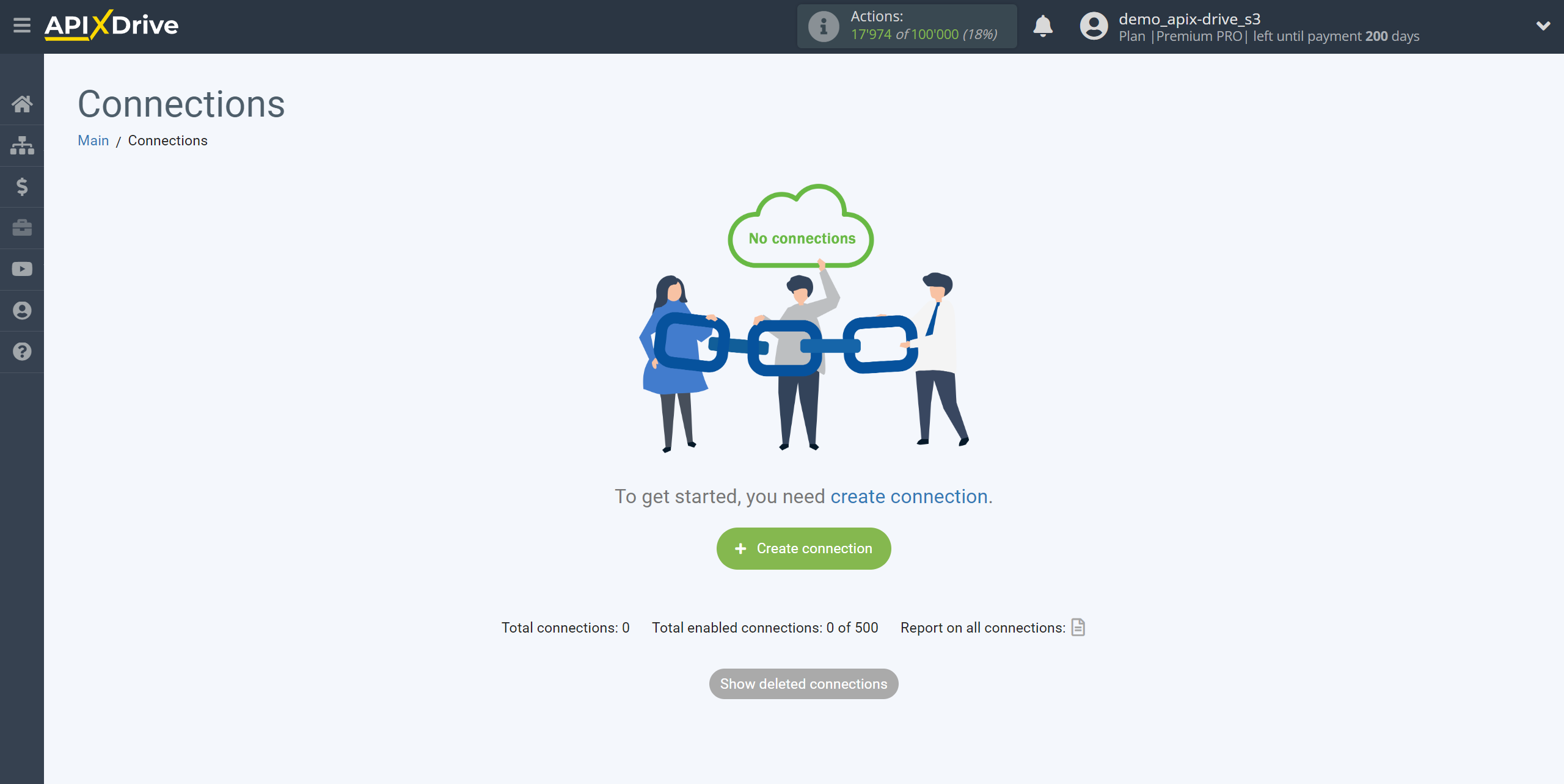
Select the system as the Data Source. In this case, you must specify Caspio Cloud Database.
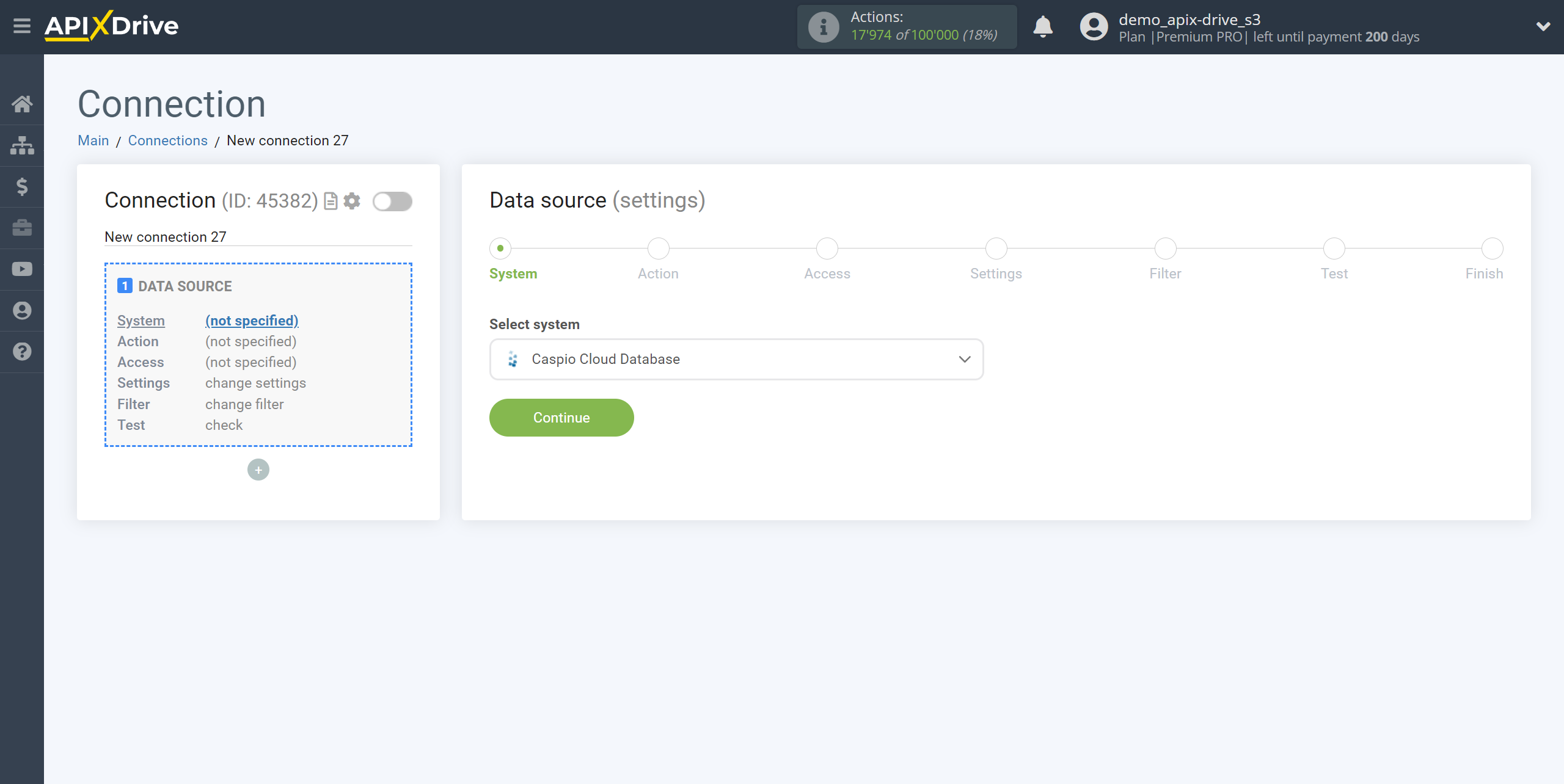
Next, you need to specify the action, “Get DATA”.
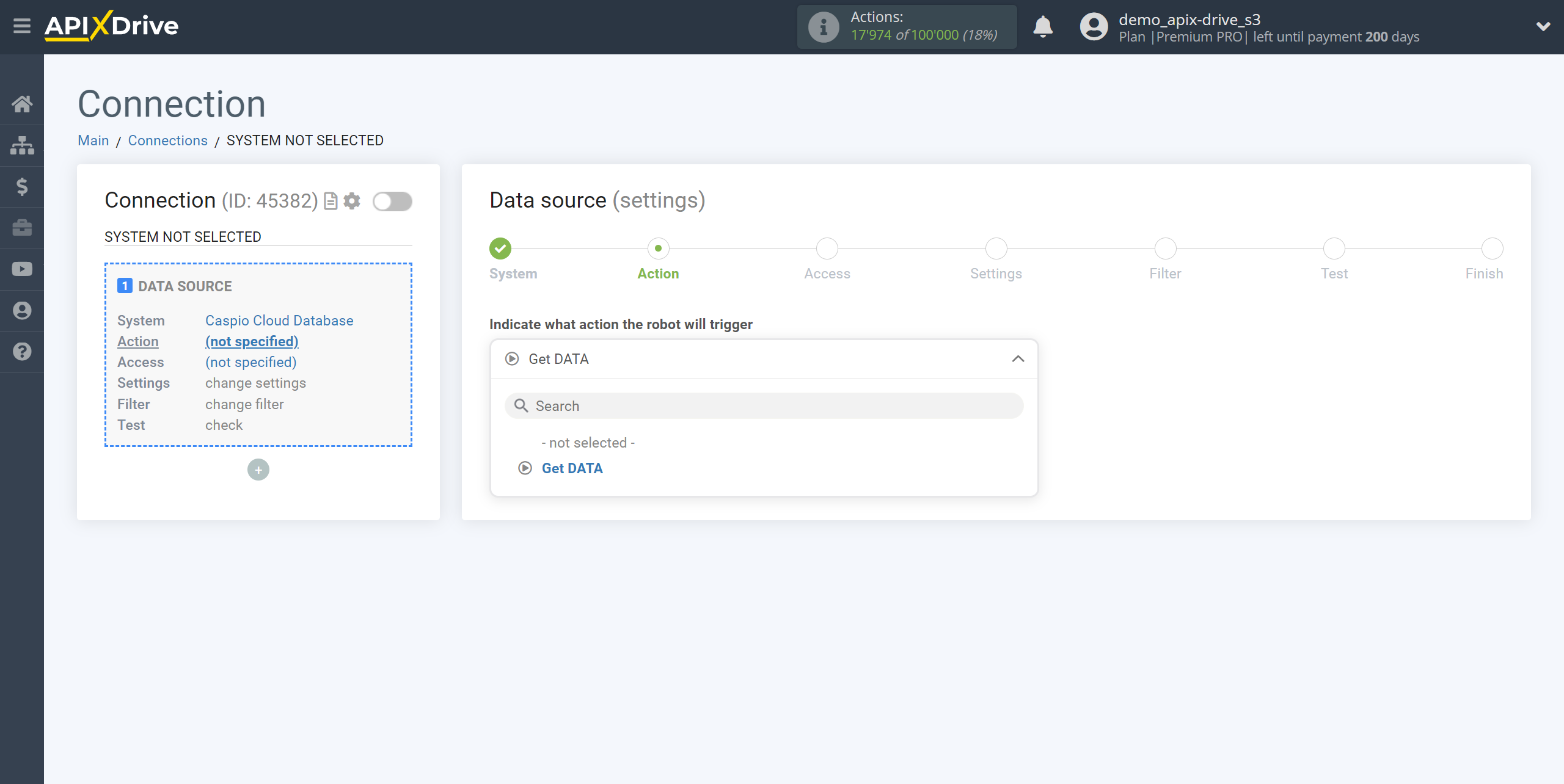
The next step is to select the Caspio Cloud Database account from which will get the data.
If there are no accounts connected to the system, click “Connect account”.
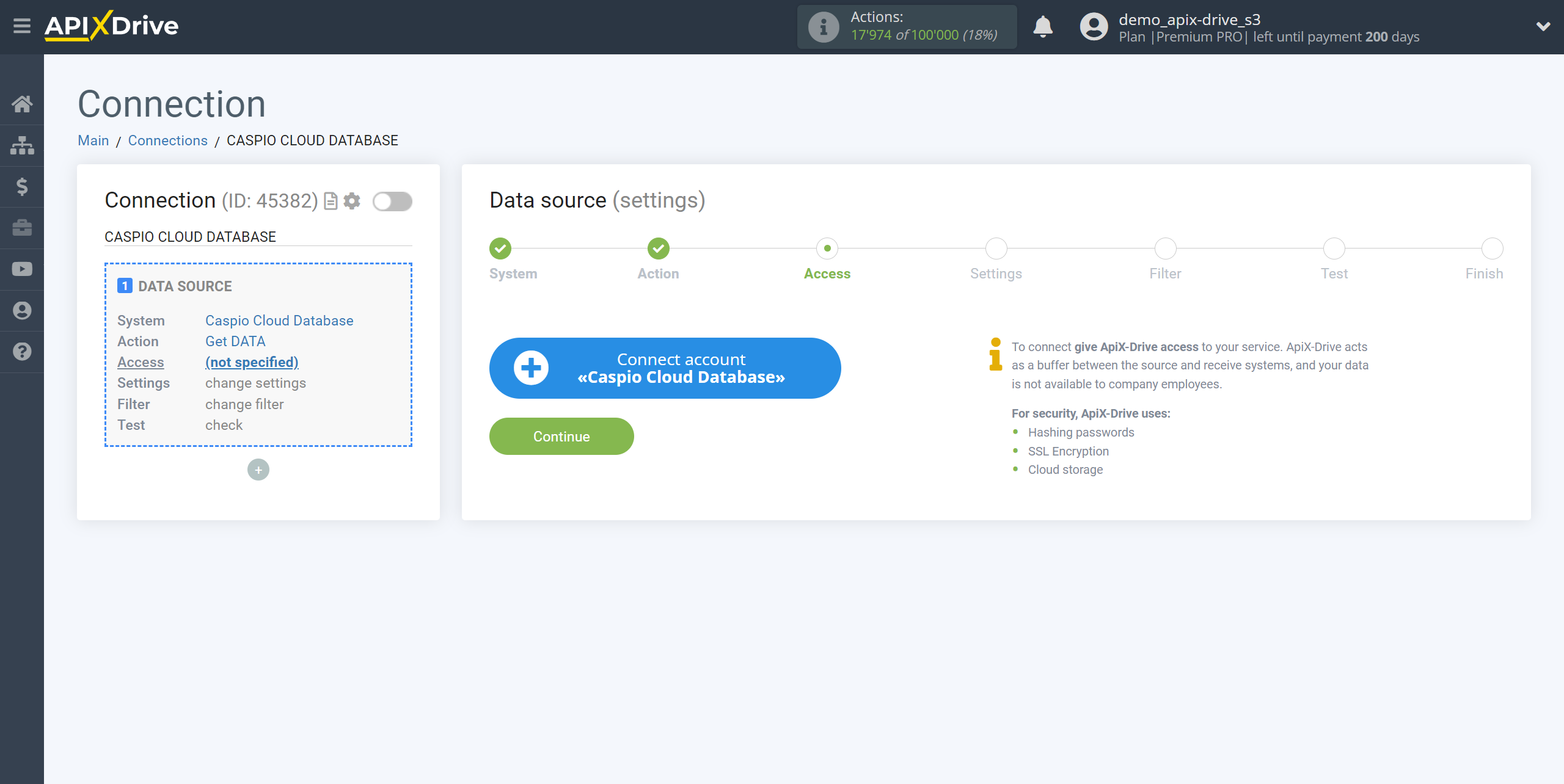
Enter the name of your account (if necessary) and click "Save".
After this, the page will reload and the saved account will be automatically selected.
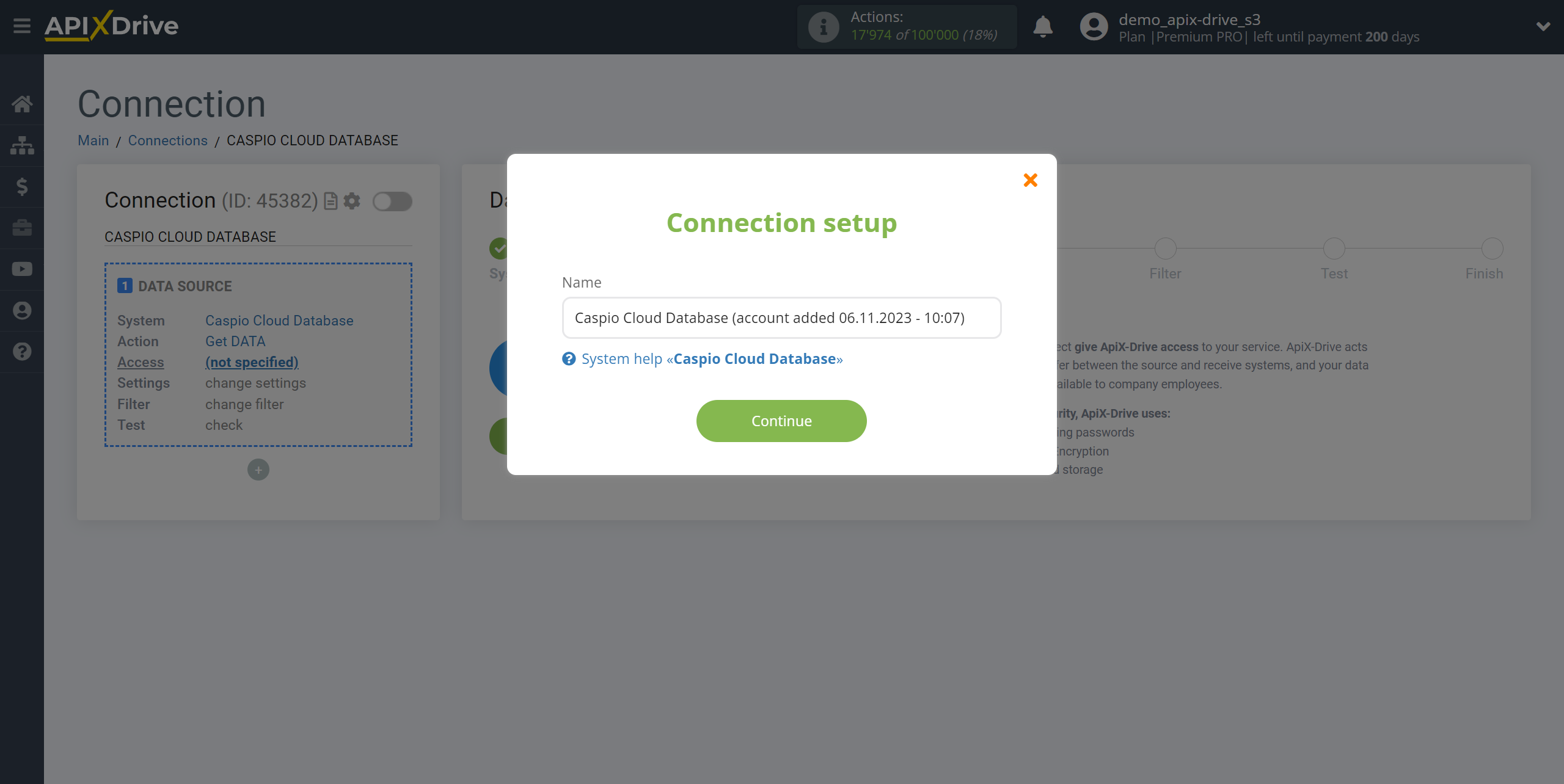
If this does not happen, select the created account from the list.
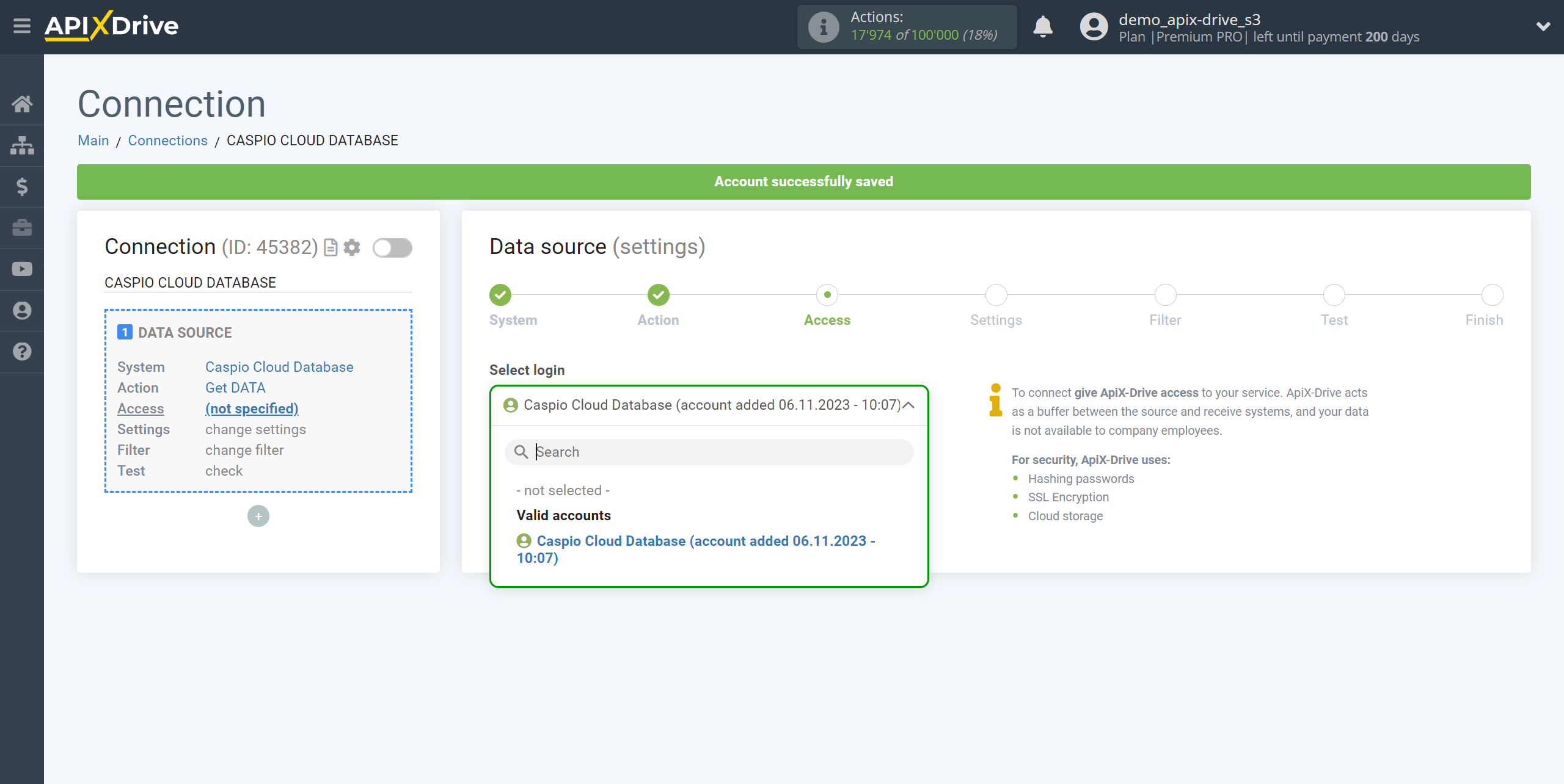
Copy the link in the "URL for receiving data" field and go to your Caspio personal account.
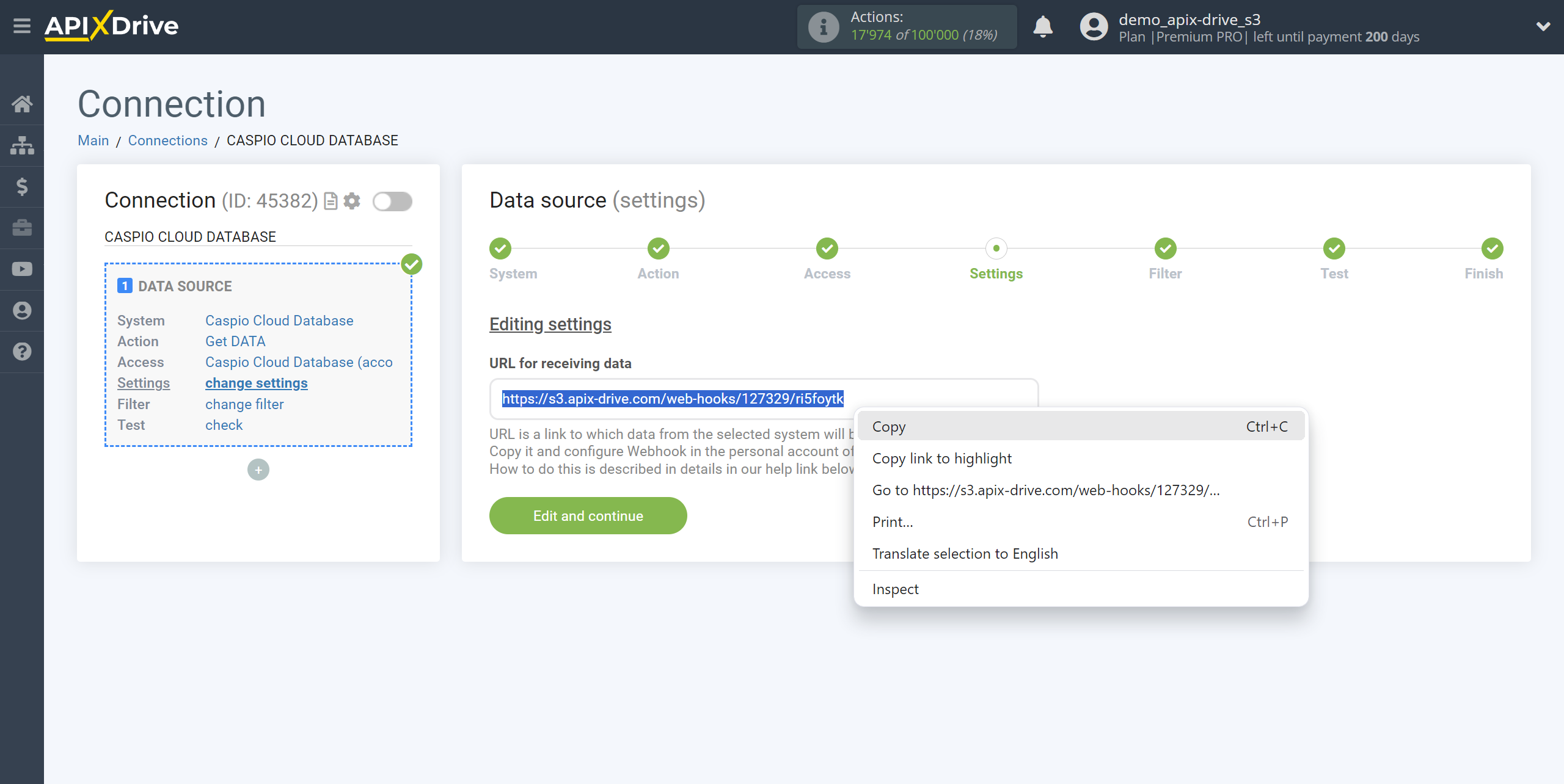
In your Caspio Cloud Database personal account, go to the Webhooks section and click Create outgoing webhook.
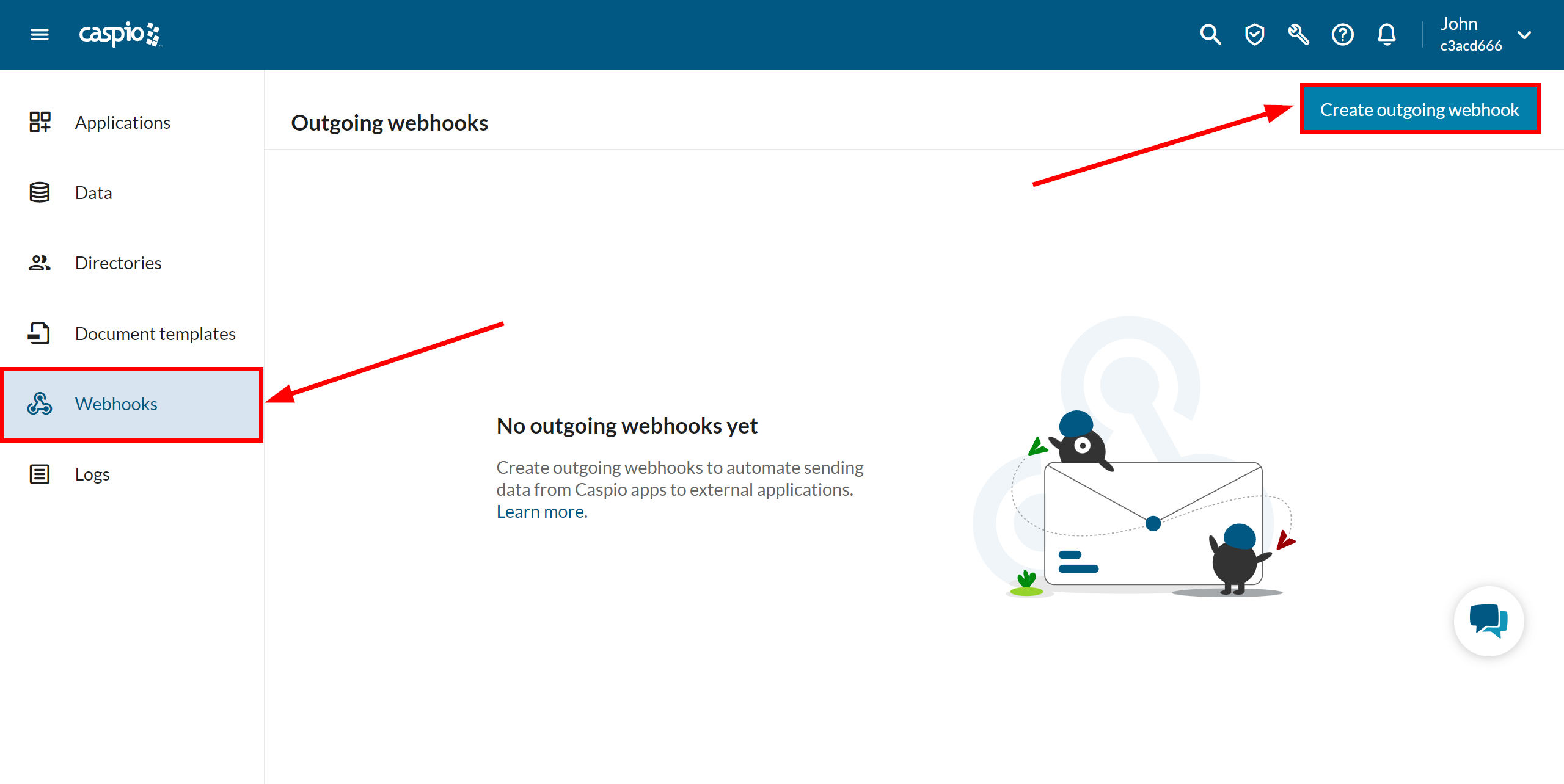
In the Name field, enter the name of your connection, then in the Outgoing URL field, paste the previously copied link from ApiX-Drive and click Create to create a new Webhook.
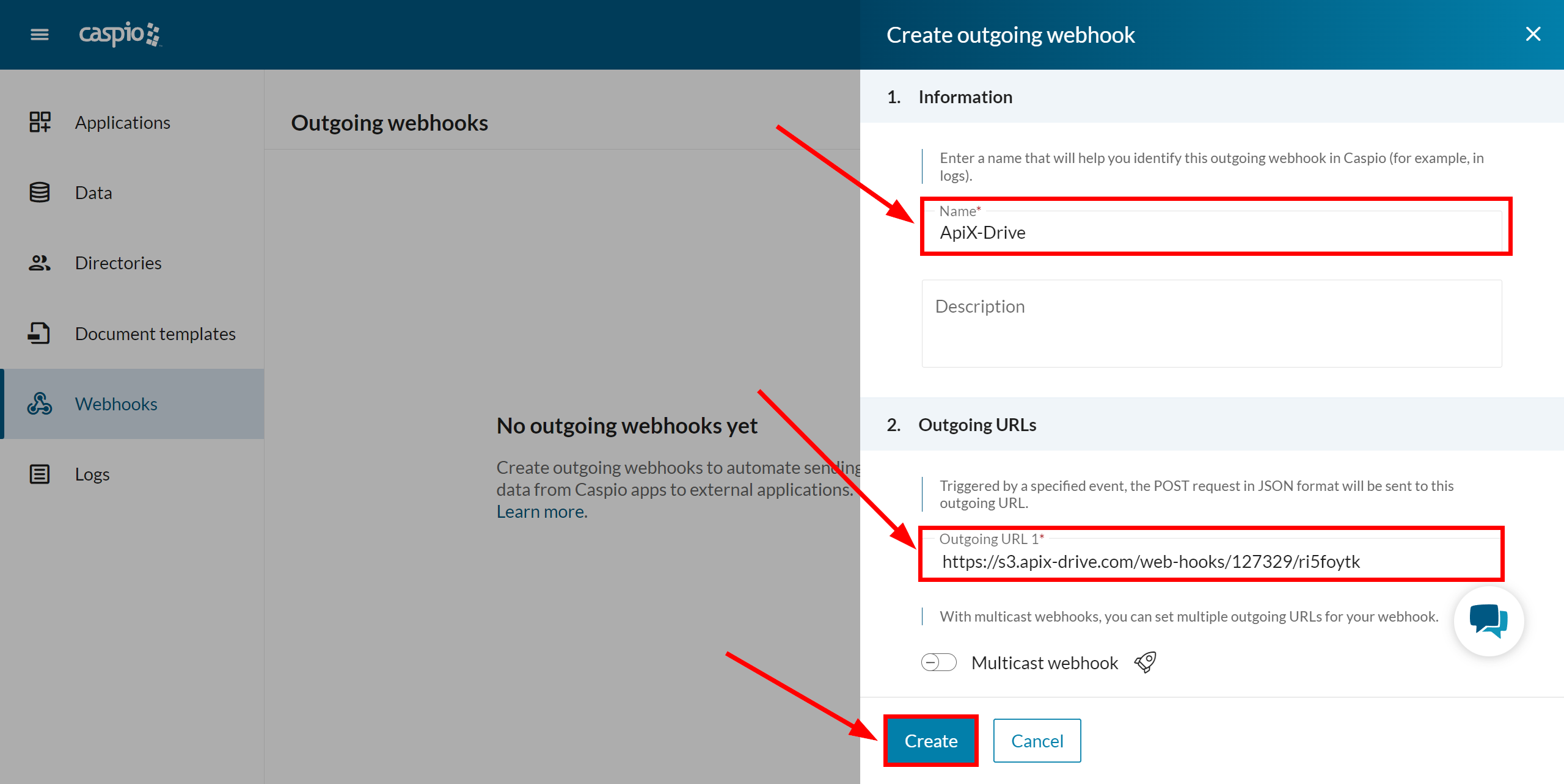
Now you need to create an event in which data will be sent to the Webhook; to do this, click Create event.
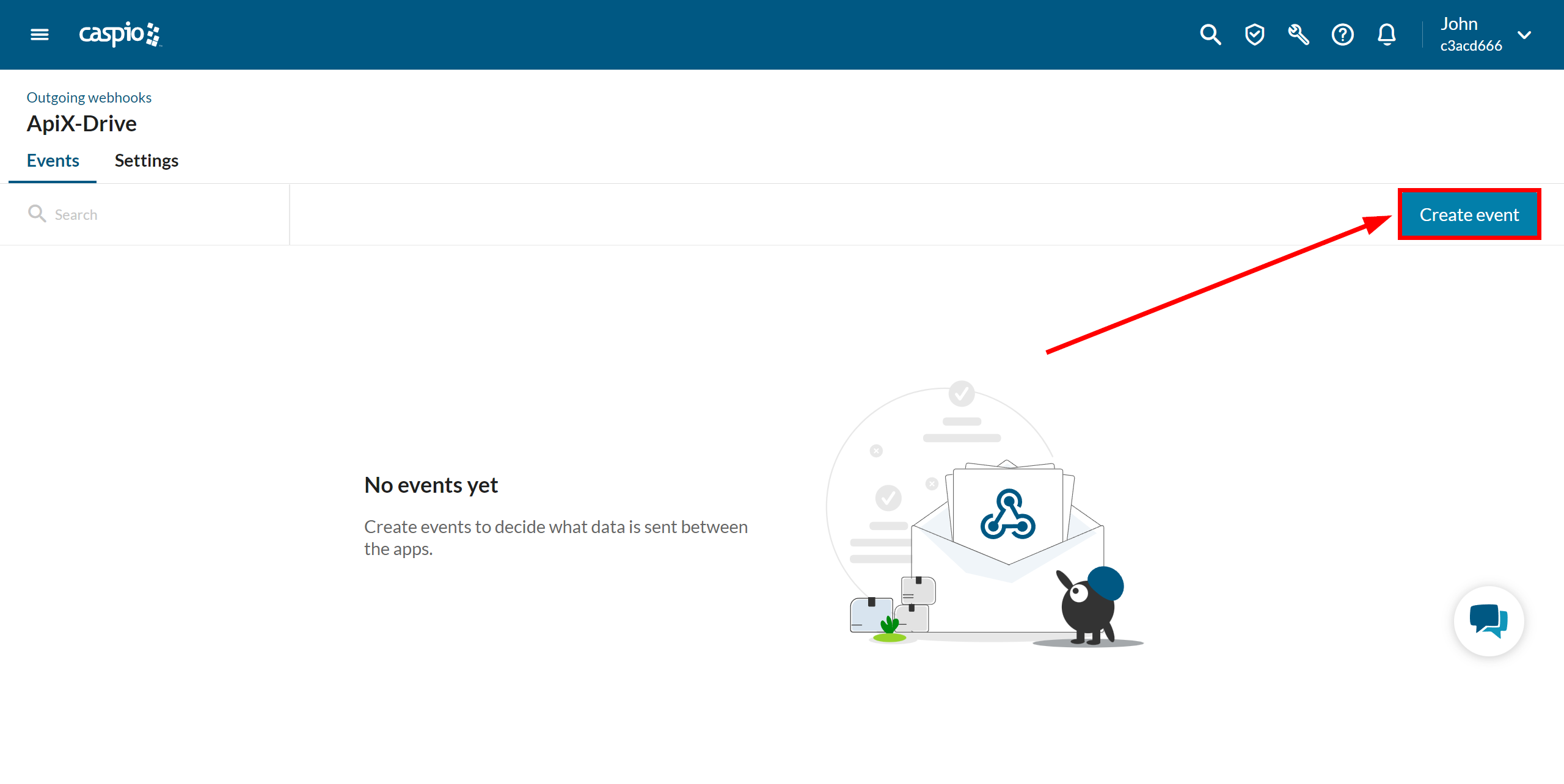
Select your table and the type of event that triggers sending data to Webhook. Also make sure that your event is active and the appropriate checkbox is checked.
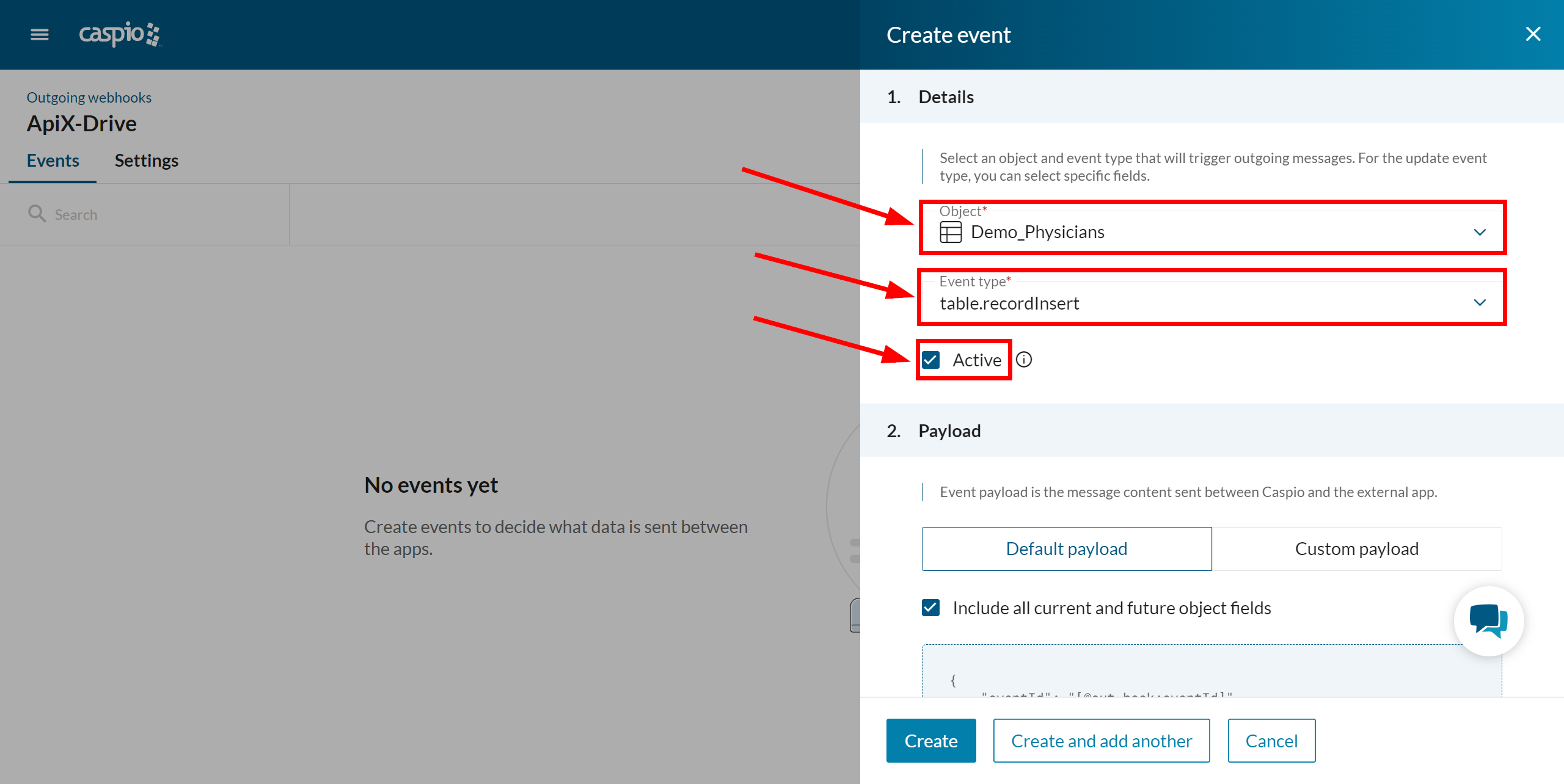
In the Payload section, you can leave data sent for all fields, as in this example in the screenshot, or uncheck the box and manually specify which fields you want to receive data for. Next, click Create.
The Webhook transfer connection is completed.
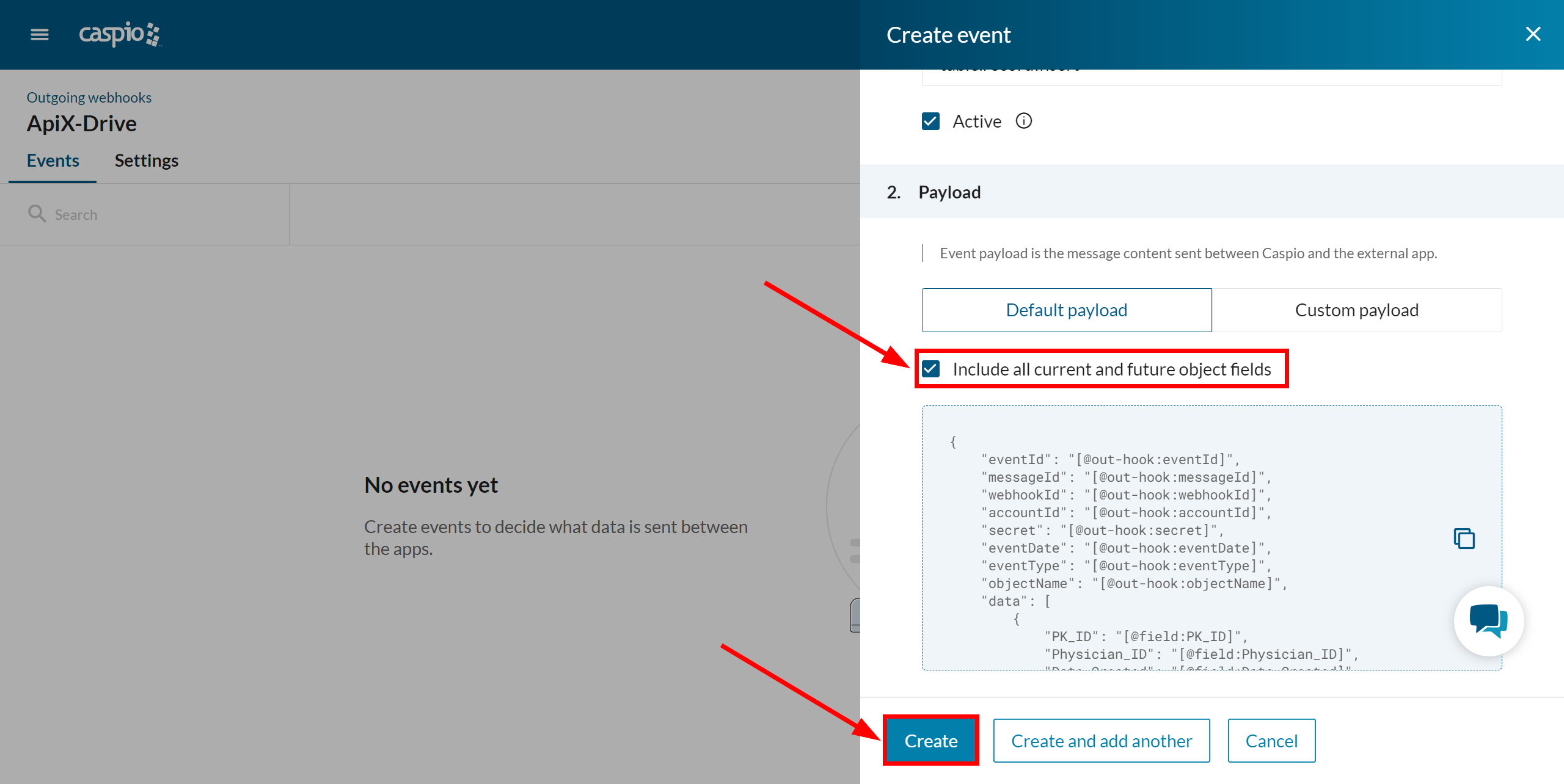
Note! After setup, our system will not immediately have test data and a list of fields, because nothing has come to the new URL yet.
It is necessary to commit an event, for example, adding a new row to the table.
After that, at the Test stage in the Data Source, fields with data will displayed.
If this does not happen, click "Load test data from Caspio Cloud Database" or repeat the test data generation, or wait for a while, the data does not come immediately, but within 1 minute.
If necessary, you can set up a Data Filter, or click "Continue" to skip this step.
To find out how to configure the Data Filter, follow the link: https://apix-drive.com/en/help/data-filter
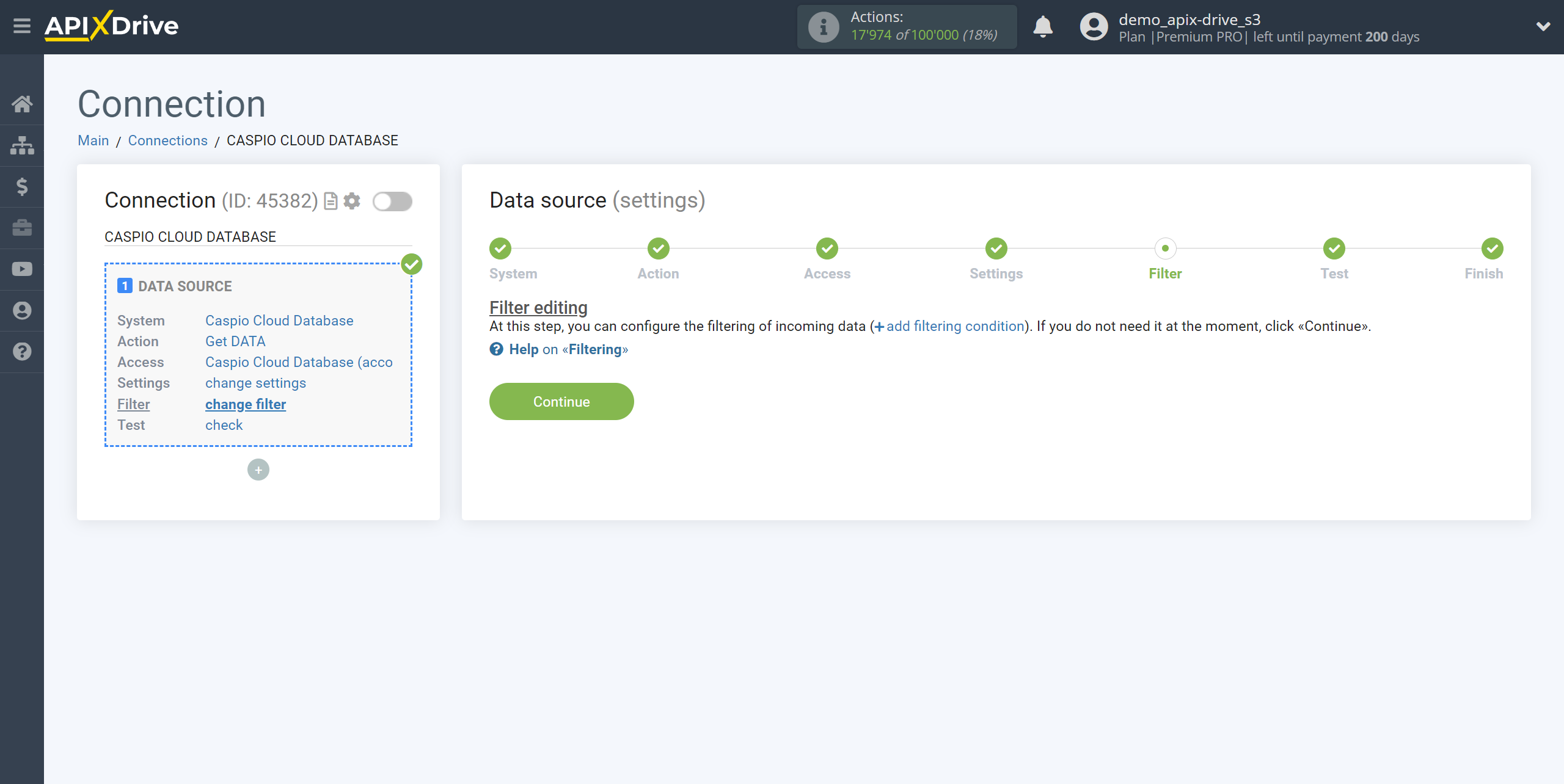
Now you can see test data for one of the table rows.
If test data does not appear automatically, click "Load test data from Caspio Cloud Database" or try generating actions in your Caspio Cloud Database using testing.
If you are satisfied with everything, click “Next”.
Note! After setup, our system will not immediately have test data and a list of fields, because nothing has come to the new URL yet.
It is necessary to commit an event, for example, adding a new row to the table.
After that, at the Test stage in the Data Source, fields with data will displayed.
If this does not happen, click "Load test data from Caspio Cloud Database" or repeat the test data generation, or wait for a while, the data does not come immediately, but within 1 minute.
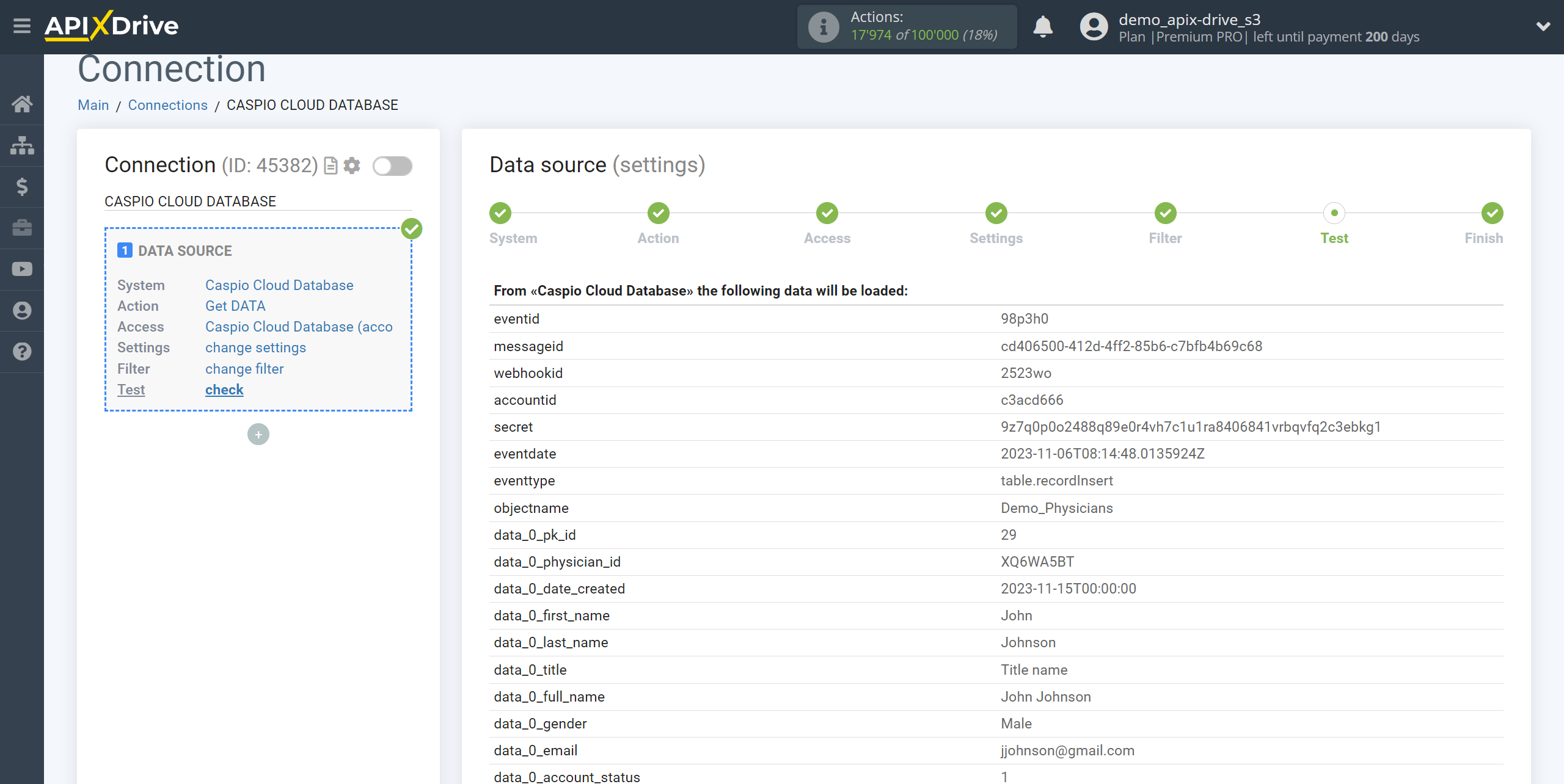
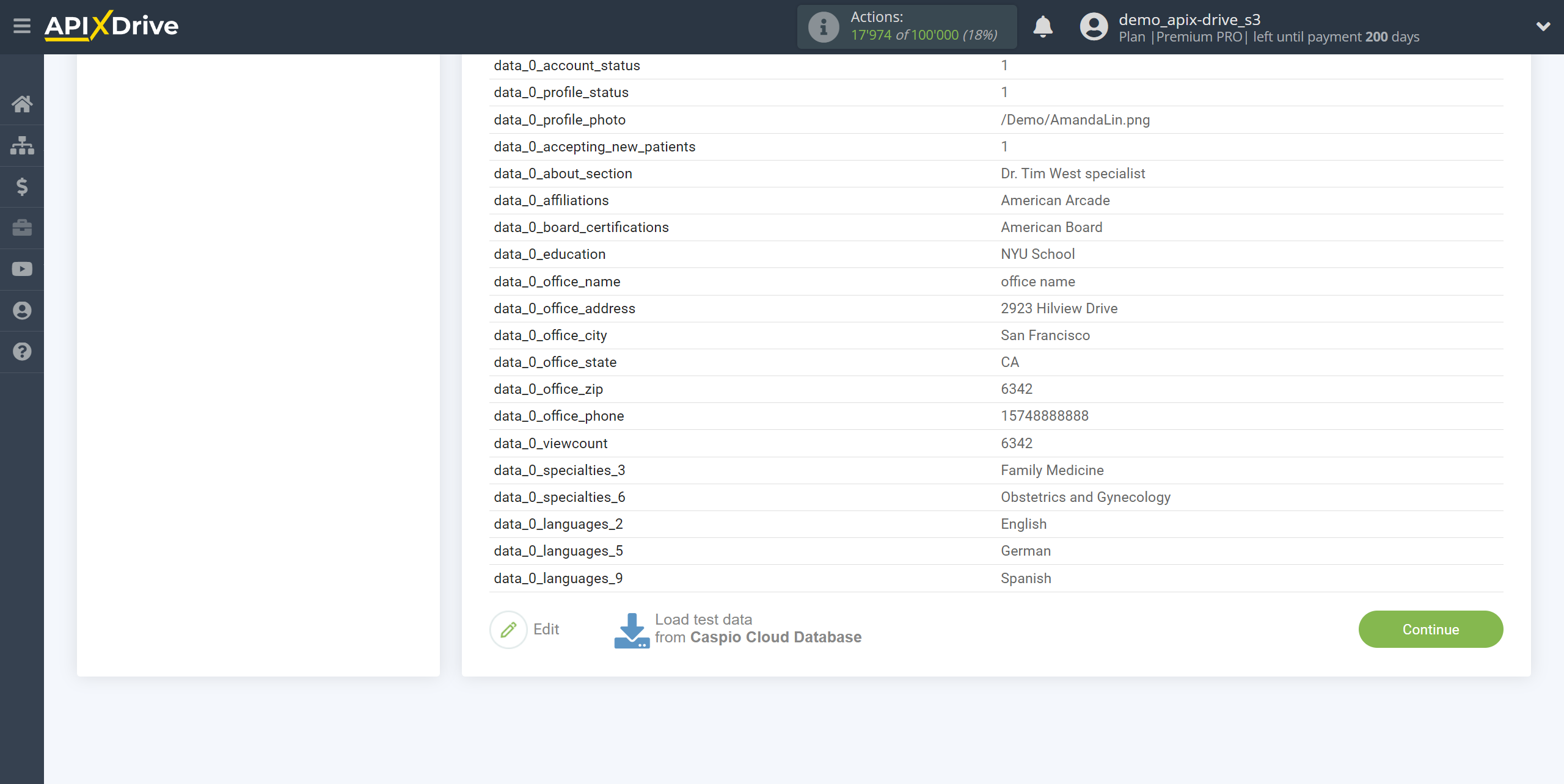
This completes the entire Data Source setup! See how easy it is!?
Now you can start setup the Data Destination system.
To do this, setup it yourself or go to the help section "Data Destination", select the service you need as Data Destination, and follow the setup recommendations.
Good luck!
